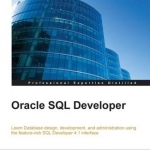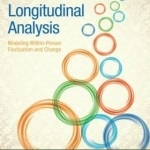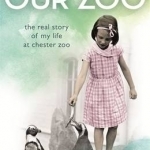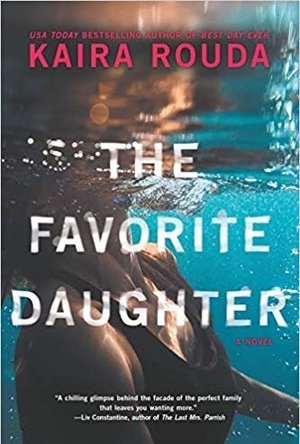
Oracle SQL Developer
Book
Learn Database design, development,and administration using the feature-rich SQL Developer 4.1...

Longitudinal Analysis: Modeling Within-Person Fluctuation and Change
Book
Longitudinal Analysis provides an accessible, application-oriented treatment of introductory and...
Many people in Britain may have recently watched the drama series Our Zoo on BBC1 about the Mottershead family who moved to Oakfield, Upton in 1930 with the aim of building a zoo without bars. Based on a true story the drama over exaggerated the difficulties the family faced in developing what became to be the famous Chester Zoo. Until 2010 when TV producer Adam Kemp approached her, June Mottershead had never thought about making her history available to the public. As the truth had to be bent slightly for the television production with the removal of certain characters and added romance, and, of course, the laws preventing chimpanzees from being filmed, June Mottershead has penned the true story, also called Our Zoo, which is just as fascinating as what was shown on screen.
June was only four when she moved to Upton with her parents, grandparents, and her fourteen-year-old sister Muriel as well as a selection of animals. The BBC1 drama only showed up until the point that her father, George, had finally been given permission to build his zoo despite the petition against it. In the book, however, this occurs within the first few chapters and then continues on until June’s marriage to her husband Fred Williams in 1949. In fact the time period of the narrative jumps around depending on the animals or events that June is describing.
A large chunk of the book is focused on the effect the Second World War had on the zoo. As can be expected the rationings of vital products took its toll on the animals’ diets and, although the zoo never took a direct hit, the Liverpool blitz caused havoc by destroying the glass tanks in the aquarium. On the other hand, the amount of animals rapidly grew, as it was not just humans that became refugees during the war.
It was a delight to read about June’s relationships with some of the animals, particularly Mary the chimpanzee who was also June’s best friend as a child and behaved in a humanlike manner. Alas, as well as the happy moments there were the inevitable upsetting accounts of the deaths some of the animals, either from old age, illness or accidents.
While Our Zoo cannot be described as a novel, it neither has the feel of an autobiography. The conversational tone of the writing made it a pleasure to read and easy to visualize (admittedly watching the televised version had already provided a certain image).
This easy to read book is a strong recommendation for those who enjoyed the BBC adaptation and wish to find out what happened next. It does not matter if you have not watched the drama, as it is overall a fascinating story to read.
Many people in Britain may have recently watched the drama series <i>Our Zoo</i> on BBC1 about the Mottershead family who moved to Oakfield, Upton in 1930 with the aim of building a zoo without bars. Based on a true story the drama over exaggerated the difficulties the family faced in developing what became to be the famous Chester Zoo. Until 2010 when TV producer Adam Kemp approached her, June Mottershead had never thought about making her history available to the public. As the truth had to be bent slightly for the television production with the removal of certain characters and added romance, and, of course, the laws preventing chimpanzees from being filmed, June Mottershead has penned the true story, also called <i>Our Zoo</i>, which is just as fascinating as what was shown on screen.
June was only four when she moved to Upton with her parents, grandparents, and her fourteen-year-old sister Muriel as well as a selection of animals. The BBC1 drama only showed up until the point that her father, George, had finally been given permission to build his zoo despite the petition against it. In the book, however, this occurs within the first few chapters and then continues on until June’s marriage to her husband Fred Williams in 1949. In fact the time period of the narrative jumps around depending on the animals or events that June is describing.
A large chunk of the book is focused on the effect the Second World War had on the zoo. As can be expected the rationings of vital products took its toll on the animals’ diets and, although the zoo never took a direct hit, the Liverpool blitz caused havoc by destroying the glass tanks in the aquarium. On the other hand, the amount of animals rapidly grew, as it was not just humans that became refugees during the war.
It was a delight to read about June’s relationships with some of the animals, particularly Mary the chimpanzee who was also June’s best friend as a child and behaved in a humanlike manner. Alas, as well as the happy moments there were the inevitable upsetting accounts of the deaths some of the animals, either from old age, illness or accidents.
While <i>Our Zoo</i> cannot be described as a novel, it neither has the feel of an autobiography. The conversational tone of the writing made it a pleasure to read and easy to visualize (admittedly watching the televised version had already provided a certain image).
This easy to read book is a strong recommendation for those who enjoyed the BBC adaptation and wish to find out what happened next. It does not matter if you have not watched the drama, as it is overall a fascinating story to read.
Kristy H (1252 KP) rated The Favorite Daughter in Books
Jun 21, 2019
"After a year of grieving, it's time to step back into my family, or what remains of it and that's precisely my plan."
So this review is going to be a little unpopular, perhaps, based on others I've seen. I'd like to point out that it's not a negative review, per se, just not a gushing review as so many others seem to be. I just felt a little let down by this one; it left me a little flat. I found a lot of the twists predictable and while I found the book a very compelling read, there was just something "off" that didn't make it a "wow" read.
Still, as mentioned, this is a very readable book, and it will keep you engaged. Jane is an interesting character, to say the least, even if I sometimes found her more clueless than diabolical. She is, of course, an unreliable narrator, and we are only allowed to learn things as Jane reveals them to us. As a result, we're left a little confused, never quite sure where we stand. One of the things I liked most about this book was how easy it is to get sucked into Jane's delusional world as the novel is told in a very conversational style, with her sometimes speaking directly to the reader. She's also a pretty terrible person and yet oddly fascinating.
"Without Mary to place my biggest hopes and dreams on, I'm left with Betsy."
Her relationship with her daughters is pretty messed up, to say the least, and as a result, the book can be pretty creepy and bizarre. It's definitely quite a wild ride. Still, I was a little disappointed at how much I figured out ahead of time; I would have liked to have been more surprised.
Overall, this is a quick read and it's pretty intriguing. You'll get caught up in Jane's delusions pretty easily, even if some of them are fairly easily telegraphed. Others really rave about this one, so hopefully you'll enjoy it even more than me. I still recommend it; it's an interesting read. 3 stars.

Learn Spanish Levels I & II with Bueno, entonces...
Education and Entertainment
App
Bueno, entonces... ready to learn Spanish? Bueno, entonces... is an intensive 5-week Spanish...

The Message Bible (MSG)
Book and Education
App
This is not a study Bible, but rather "a reading Bible." For more than two years, Eugene Peterson...

Apraxia Therapy: Speech Practice for Aphasia
Medical and Education
App
Tackle apraxia and aphasia head-on with a powerful speech therapy app that uses video to help people...



